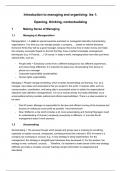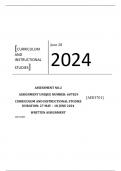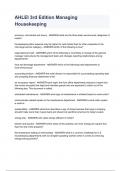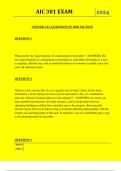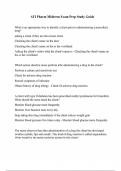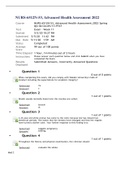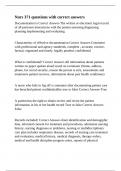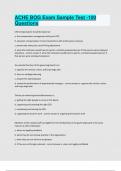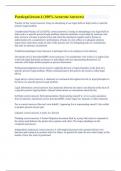Samenvatting
Summary Introduction to Managing and Organising
- Vak
- Instelling
Samenvatting van de lessen 'Introduction to managing and Organising, gegeven door Steffie Weil in het eerste semester van het Schakeljaar 'Organisatie en Management'. Summary of the 'Introduction to Managing and Organising' courses, given by Steffie Weil in the first semester of the transition y...
[Meer zien]
